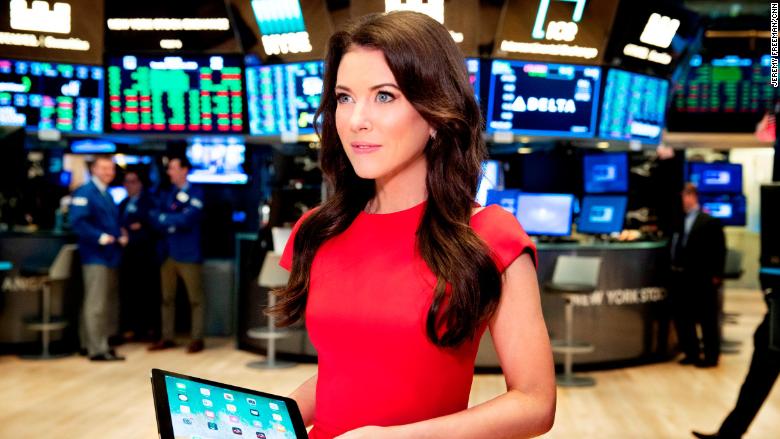Meet Julia Chatterley, host of CNN’s new global markets show “First Move”

From Argentina to Italy to Turkey to the United States, there’s plenty of global markets news to report.
Julia Chatterley will do that every weekday at 9 a.m. ET in “First Move,” which premieres on CNN International on Monday. Presented live from the floor of the New York Stock Exchange, the show will cover the latest market moves in the United States and around the world.
“We hope to cut through the noise, to distill the information that truly matters,” Chatterley said.
Chatterley began her career working in finance at Morgan Stanley in London. She joins CNN from Bloomberg, where she hosted the shows “What’d You Miss?” and “Bloomberg Markets.”
Ahead of her premiere, Chatterley weighed in on global markets, and what she’s watching.
The interview, conducted via email and lightly edited for length and clarity, is below.
Emerging markets contagion has been a concern all week. Looking at what’s happening in China, Turkey, South Africa and Argentina — should investors worry?
You just mentioned several countries that are facing a number of idiosyncratic risks. [There’s] significant currency pressure on countries that are reliant on foreign investment flows. Turkey, with dubious politics leadership. Argentina, waiting for IMF assistance.
We’ve had several years of easy monetary policy that’s slowly coming to an end. A stronger US dollar, higher US bond yields, higher oil prices, trade headwinds — in combination, this is a perfect storm for emerging markets.
Shorter term investors will be flushed out. Longer term investors know that this kind of volatility is the price you pay when you seek higher returns.
This week marks the 10-year anniversary of one of the worst points in the financial crisis. In your view, how has the world changed since then? What risks remain?
The financial world has greater regulation, though admittedly the current administration has taken steps to reduce that. I think the public jury is still out on whether this is a good thing or not.
The liquidity that exists in financial markets today — and banks’ ability to react to a dramatic reduction in risk appetite — has yet to be tested, even after the spike in volatility we saw in the first quarter of this year.
What matters more perhaps is the human cost. The income inequality, the backlash and resulting political populism. We faced it first in Europe, and now other parts of the world are dealing with it, too. The US is no exception.
Financial markets have made dramatic gains as a result of the unprecedented cash that was pumped into the system to support it. We don’t know what the world will look like now without it, particularly in the next slowdown. The unknown here feels like the most significant risk.
How could global trade tensions affect markets?
Global trade tensions have already affected financial markets. Isn’t that what we are seeing in the bear market in [MSCI Emerging Markets] stocks to some degree, even in Chinese equities?
Never mind the individual stocks and markets that have depreciated to small or larger degrees in the US and Europe.
Look at the business surveys in countries around the world — I see concern. Here in the US, it’s tough to directly quantify the impact, admittedly. Until we see significant revisions in earnings as a direct result of trade tensions, it will remain so.
I think if the US administration fulfills its promise to enact tariffs on $400 billion-plus of products from China, then it’s coming. Apple (AAPL), Cisco (CSCO), Juniper (JNPR) — big techs firms are already saying, “Please don’t do this.” Imagine the lobbyists working behind the scenes at this moment!
My big concern is just how far [Chinese President] Xi Jinping can be pushed. You can’t separate economics and markets from politics in China.
Does Italy have the seeds of a new Eurozone debt crisis, or is it simply too big to fail?
It’s not a seed. It’s a tree. We’ve known Italy is a problem for years — throughout the European debt crisis.
Yes, Italy is too big to fail, even as they now make efforts to tackle the nonperforming loans that remain. They have — and have had — a window of opportunity with [European Central Bank] bond buying and artificially suppressed bond yields to fix the house. Some progress has been made.
The new government needs to realize that they can be firebrands now, while the ECB gives them cover. But if and when [quantitative easing] ends they will be punished.
CNNMoney (New York) First published September 9, 2018: 2:08 PM ET




